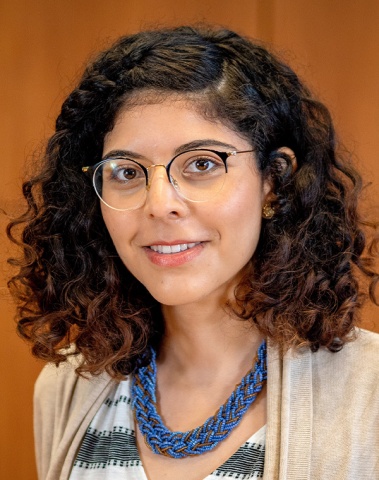“Go in with little expectations, because you never know what your experience will be like. It’s just a matter of being open to learning.”
Vanessa Castro (MPA/MPH ‘20) landed her dream job right out of the Ford School — Associate Director of HIV and Health Equity at the Human Rights Campaign (HRC).
“HIV work and working with the LGBTQ community has been something I’ve always been passionate about, so I found what I call my dream job right now,” she said. “It’s a perfect fit for the kind of community-driven work I foresee myself doing for a while and the communities I want to uplift.”
Castro works on the foundation side of HRC, allowing her to create programming that focuses on biomedical prevention and education for communities disproportionately impacted by HIV/AIDS. She works to change the narrative and end the stigma around HIV/AIDS, focusing on communities, centering Black and Latinx communities at the forefront of the epidemic. While her work varies day-to-day, Castro’s role allows her to collaborate, foster relationships, and create community.
“My work varies in terms of where the need is to support our community partners,” Castro said. “It’s a lot of programming, planning, meetings with external partners to coordinate, plan and see how we can support them.”
Recently, under the leadership of Castro, the HIV and Health Equity team launched their youth initiative, GENERATE. The initiative is a peer-to-peer facilitator program that focuses on the professional development and leadership of young Black and Latinx LGBTQ young people to mobilize communities most impacted by HIV/AIDS. The program aims to train their advocates to tell their stories and raise awareness.
“It’s so important to foster relationships that offer them the opportunity to tell their stories in a way that helps them create transformative change in their communities, whatever the topic of interest may be,” Castro said. “Being able to develop this program and work through the challenges to make sure that it’s beneficial to our inaugural cohort has been my favorite part. Being able to collaborate and work with amazing young people who are doing incredible work to advance rights for the LGBTQ community has been amazing.”
While Castro finds a lot of energy and light in her work, it can get disheartening sometimes.
“The challenging part is when we hear about news like the anti-trans sports bills and things that impact our work and our ability to advance rights for our community members,” she said. “We just have to be able to navigate and forge on and find ways to continue the work.”
Castro credits the Ford School for giving her confidence building new relationships and in writing for multiple audiences. As part of the MPA’s required capstone, Castro learned about the importance of federally qualified health centers, the communities they serve, and how their programs are funded.
“At HRC, I help draft op-eds and written responses, which allow us to shine a light on the HIV epidemic and who it’s impacting. The writing course that I took [at Ford] was really helpful and made me feel confident,” she said. “I have to write things that are accessible to everyone, not just a select few, which sometimes happens with policy or research writing. So, keeping that lens of accessibility has been something that I try to maintain in my work.”
Looking back on her time at Michigan, Castro had one piece of advice.
“Lean on your networks. Utilize the resources you have available,” Castro said. “Sometimes folks come in with imposter syndrome or feel like they can’t take advantage of opportunities, but you have to try and do it all if you can and find folks with similar interests. That’s how you grow on a professional and on a personal level.”
